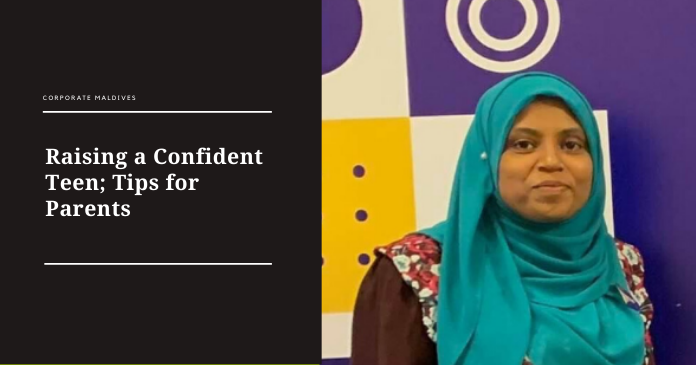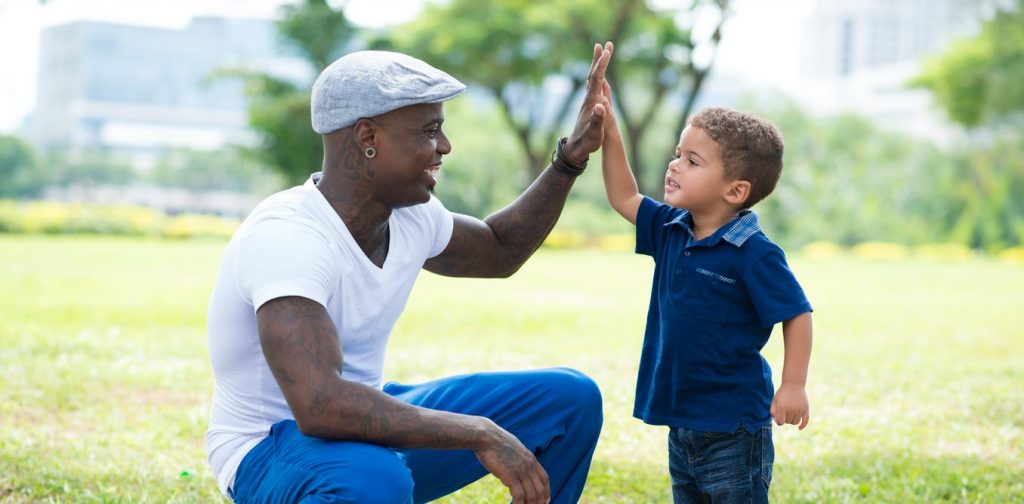
The motive and dream of every parent is nothing but to raise their kids as successful adults. As many have affirmed, the most important ingredient for a kid to be successful in life is confidence. All would agree that a crucial time which parents face during this process of growth is their teen years. A confident teen, as the term indicates, has the power to think outside the box and the courage to experiment with new things. They would acquire an outlook that accepts failure, also if need be, they will never be hesitant to renounce from it with grace, by always taking the situation as an opportunity for them to learn and grow.
I wish how easy it would be if parents could gift the confidence to every kid, wrapped in a box along with the birthday cakes on their special 13th Birthday. However, the fact is that it cannot be bought but must be nurtured in the hearts of every kid. I assume, if nurtured well confidence would provide the ability to face life, especially the cruel world outside the comfort zone of their patents, in a better manner. In addition, it would grant them the courage to tackle life challenges, disappointments, failures and ups and downs in a much-refined manner.
Parents role in increasing self-confidence of a teenager
We are well aware of the fact that in the life of a kid parent are the most influential figures. So they are naturally entitled to bear the responsibility of raising confident teenagers. As for a teenager, the support and the way parents handle each incident would contribute greatly to providing adequate confidence to confront life realities. Parents should give aid to teens in building a stable foundation from a very young age. In my view, self- satisfaction of a teenager should not be the number of likes they get for a picture on social media or how many in her same age crowd would acknowledge her way of life. Such cases would naturally result in a lack of self-confidence in the long run because the acceptance of a child is never attained by merely looking out for more friends of the same views.
As an educator in the field for the last 19 years, I have come across lots of teenagers with various kinds of confidence issues. By talking to their parents it dawned on me that most problems kids face during their teenage have roots in the very beginning of their childhood. Often we witness that, parents try to build a confident child by showering the kids with unearned praise. On the other hand, some of them keep on showing the wrong in everything kids attempt by hoping that kids will learn from it. As I understood, it does not work either way. Collecting from my experience with teenagers and their parents and many of the academic readings here I will highlight 7 ways to build confident teens.
Number 1: Unconditional love

Parents love their children naturally and there is no doubt about that. But my point here is specifically, do parents always show that love to the kids. It is easy for parents to show their love to the kids when the kids are in their best behaviour and exactly behaving how the parents want them to be. However, it is common to see that, parents withdraw their love and pretend they do not love the kids when they fail to show certain desired behaviour and as a result, they end up feeling unloved and rejected. It is essential to know that, kids are bound to make mistakes more times than they are seen in their perfect behaviour.
Loving kids unconditionally does not mean we cannot be unhappy with them or must avoid telling them they are wrong. Rather it means, the kids need to be sure of the fact that parents love them “no matter what”. When parents find a situation where kid’s behaviour must be corrected that is the time to love your kid most. And believe me; kids understand the language of love more than hate. Just be committed to love and show the love to the kids through all the ups and downs. They will be more confident in their behaviours and would definitely show high self-esteem.
Number 2: Failure is okay

The tricky fact about failure is this, failure is part of anyone’s life and the sooner kids accept this the easier life will be for them. As many would say failure is not the end of anything but it is, of course, the beginning where anyone can learn and start all over again. If not handled well mistakes can crush the self-esteem and confidence of anyone. That’s why, at any point where things do not happen as the desired way, it is the parent’s voice the teen would look for. A gentle voice that affirms us again that “this is not the end”.
When a kid faces a failure in life, whether it is their grades or an extracurricular activity, is the best time for a parent to start a positive conversation with the child. A conversation which will lead the teen towards a “growth mindset” where they will look for improvements rather than believing this is the end. Disappointment is a regular aspect of life and how much ever we protect our kids from these disappointments that will never be done. Furthermore, the worst part to accept is that parents will not be there forever to guide them or protect them from every disappointment in their life. So from the very beginning, parents must provide their kids with the tools to deal with the punches of life with grace. Early experience with failure and dealing it with a positive mindset will make a teenager more confident in both during their teenage years and later in life.
Number 3: Discover new skills

Teenage years are a very important part of a child’s growth. It is also a time they go through lots of mental, physical and emotional developments. Also, these are especially the years when kids would become more conscious about their developments. In my view, this is a time they need lots of assurance about the things which happens to them and the thoughts they are going through on a daily basis. Most importantly, it is a time they can be guided to discover them and embrace new skills and talents that they may have never thought existed before. And parents are the ones who can guide and help the teens most during this important phase of their life. If not attended properly or left to struggle they would surely end up lost and feeling less worthy. During the times they may feel they are not performing to the expectation, they must be assured of the fact that all are different and all have different skills and talents. So every failure or a difficult situation need to be taken as an opportunity to explore more and attempt new things so that the kids can find what their real talents are and what they love to do in life. Remember, acceptance and assurance from parents during such situations will boost the confidence of kids.
Number 4: Teach assertiveness

Teaching assertiveness to kids as they grow into teens is absolutely necessary. It teaches kids to stand for themselves when it demands, without hurting the person in front. They must know the importance of “no” when it is needed. When kids learn to be assertive they become confident and direct in dealing with others without really spoiling their relationships. This helps kids to build self-esteem as they get the ability to stand for their own rights without violating the rights of others.
Number 5: Freedom with guidance

From birth to 2 to 3 years parents let their kids learn on their own with their own efforts. It is when a kid learns to cry for their needs, slowly learning to crawl and then to walk, it is also the wonderful moment of parents to see their kids learn to babble and then to talk. During this process parents happily let the kids make mistakes and learn from them. But from a certain point of their life, every parent starts becoming their shadow. They gradually begin to guide them even when they do the smallest task in life. From the time of eating, studying, choosing books, doing homework to their choice of extra activities tend to be decided by the parents. Even after kids tell they have an exam next day parent will call the teacher to ensure it. Unfortunately, through this we make the kids feel that they cannot be trusted and they are not responsible enough to take any decisions in their life.
Parents really must change this attitude if they want to raise their teenagers with high self-esteem and confidence. Parents can always be the listener and the guide in the kid’s life. But never forget that it is only when kids are given the freedom to learn through their own efforts and take the decisions of their life they will grow as highly confident teens.
Number 6: Participation in family matters

It is not advisable for parents to pretend that everything is perfect at all times. Parents can openly discuss the challenges they face as a family and ask to suggest their views, ideas and how they would deal with the issues. Kids’ participation is not only limited to asking them but also listening to them and accepting their ideas when deciding on things that affect them as well. This way kids learn skills of effective communication, decision making and gradually grow confident as they feel the sense of belongingness.
Number 7: Praise the effort, not the outcome

It is very natural for parents to get very excited about the medals and trophies kids win. When parents end up celebrating only the success, students start relating it to self-worth and begin to think that they are worth only if they can win. This can have adverse impacts on students’ self-esteem.
Parents should constantly praise the efforts kids put in achieving any task rather than the outcome they get. Personally, the mantra I follow with both my kids and students is “target to be number 1; do your best and forget the rest”. This works really well as a parent as well as an educator. I never show them disappointments during a failure but would approach it with a conversation like, what went wrong? What could be done better next time?. This way kids become more confident in taking risks and they will grow into more confident teens. They won’t be scared of failure but rather will take up every failure as an opportunity to grow and learn to be better.
About the author: Dr Asiyath Mohamed Didi is the Principal of Hithadhoo School, Maldives. Her major expertise is personal and professional development, teaching and learning and leadership (especially educational leadership).













